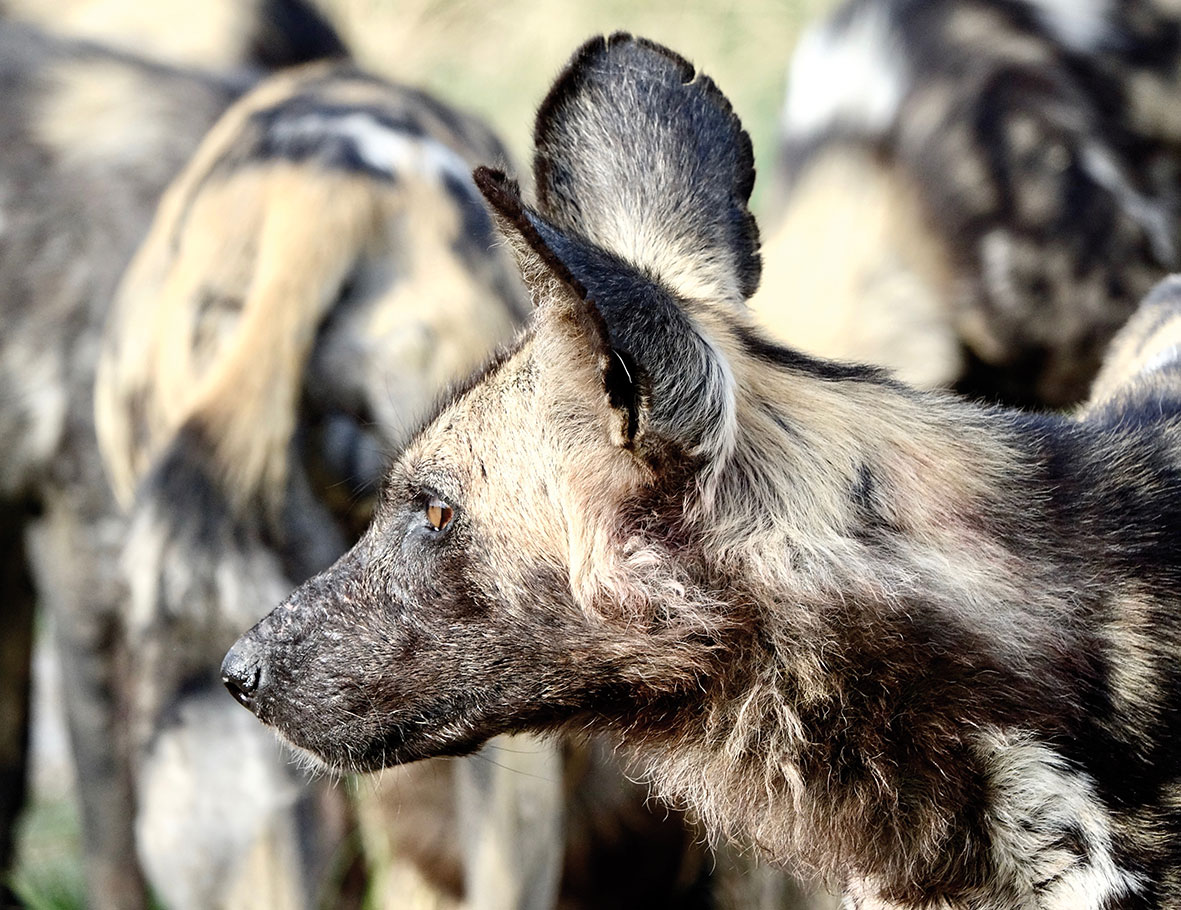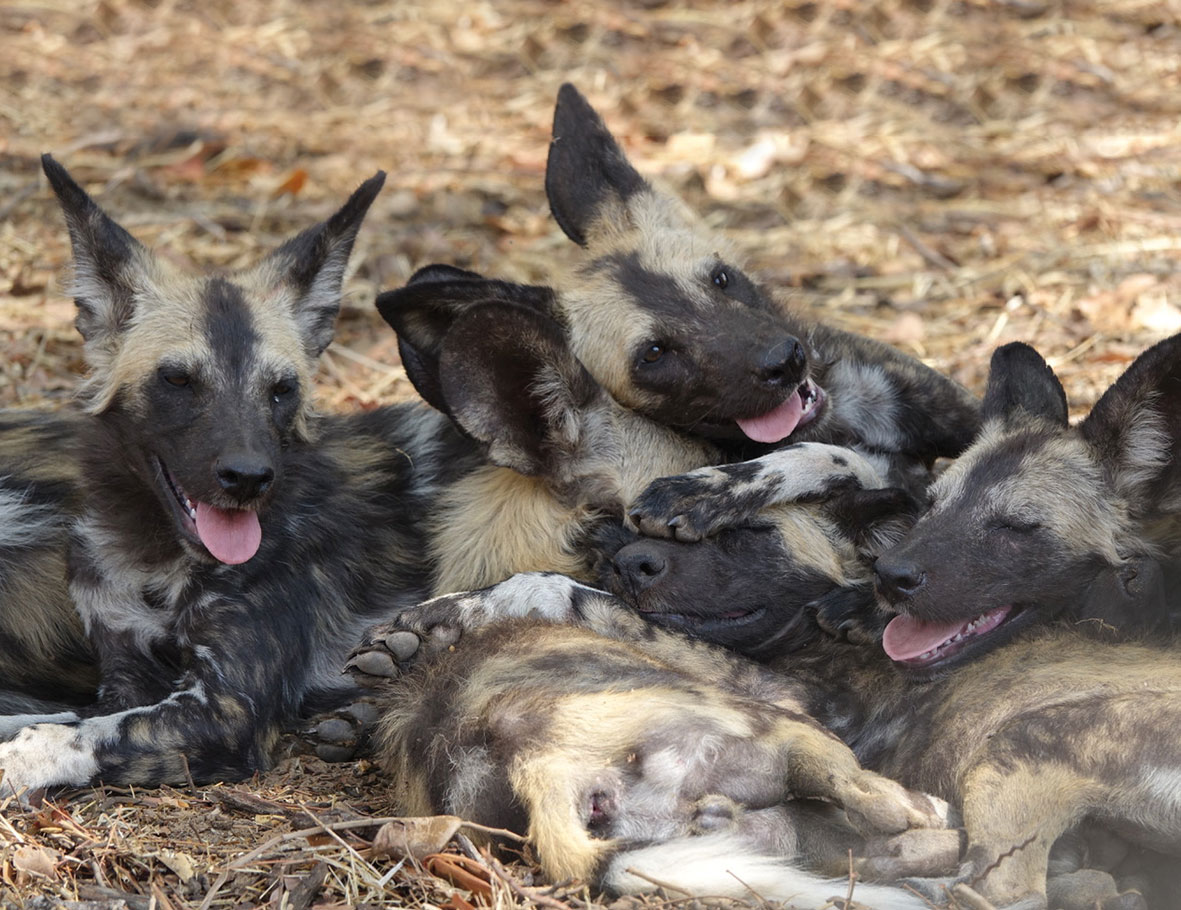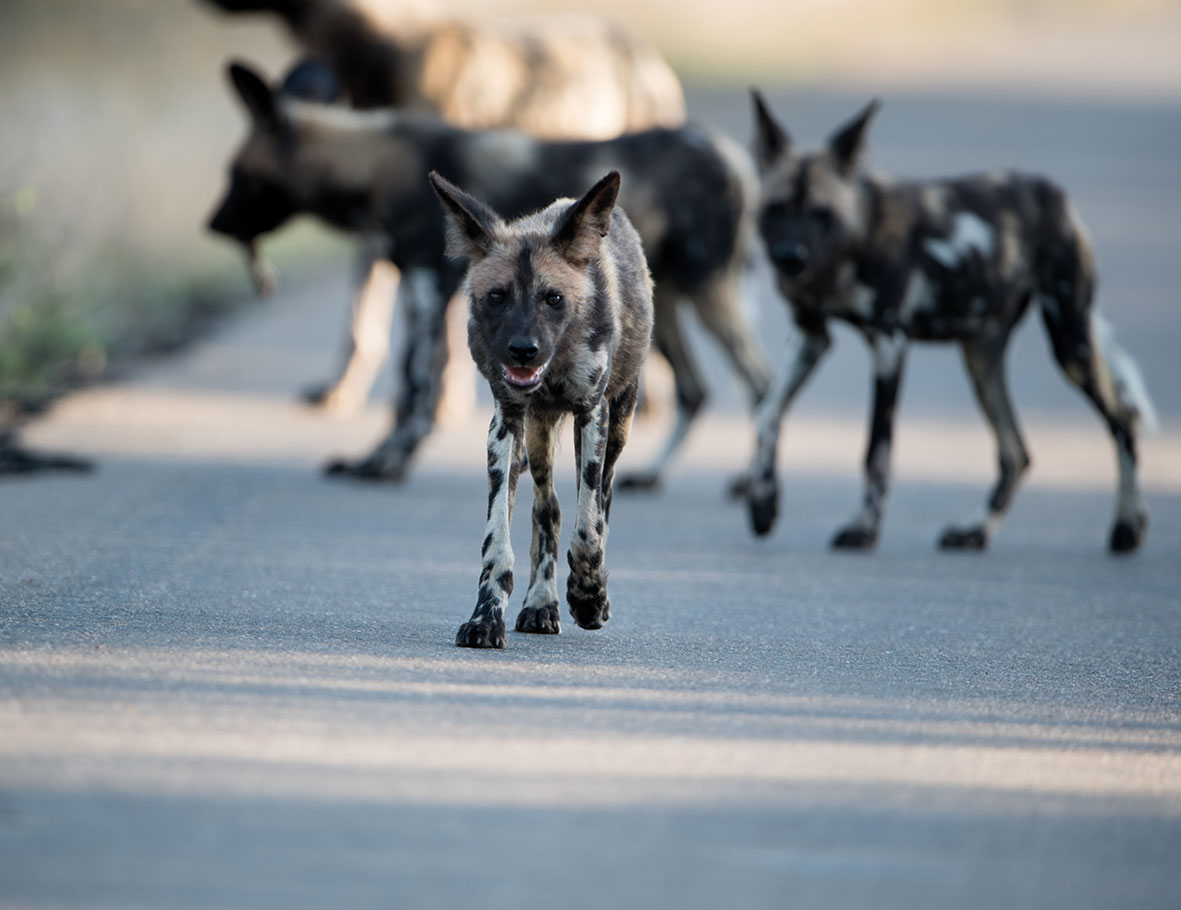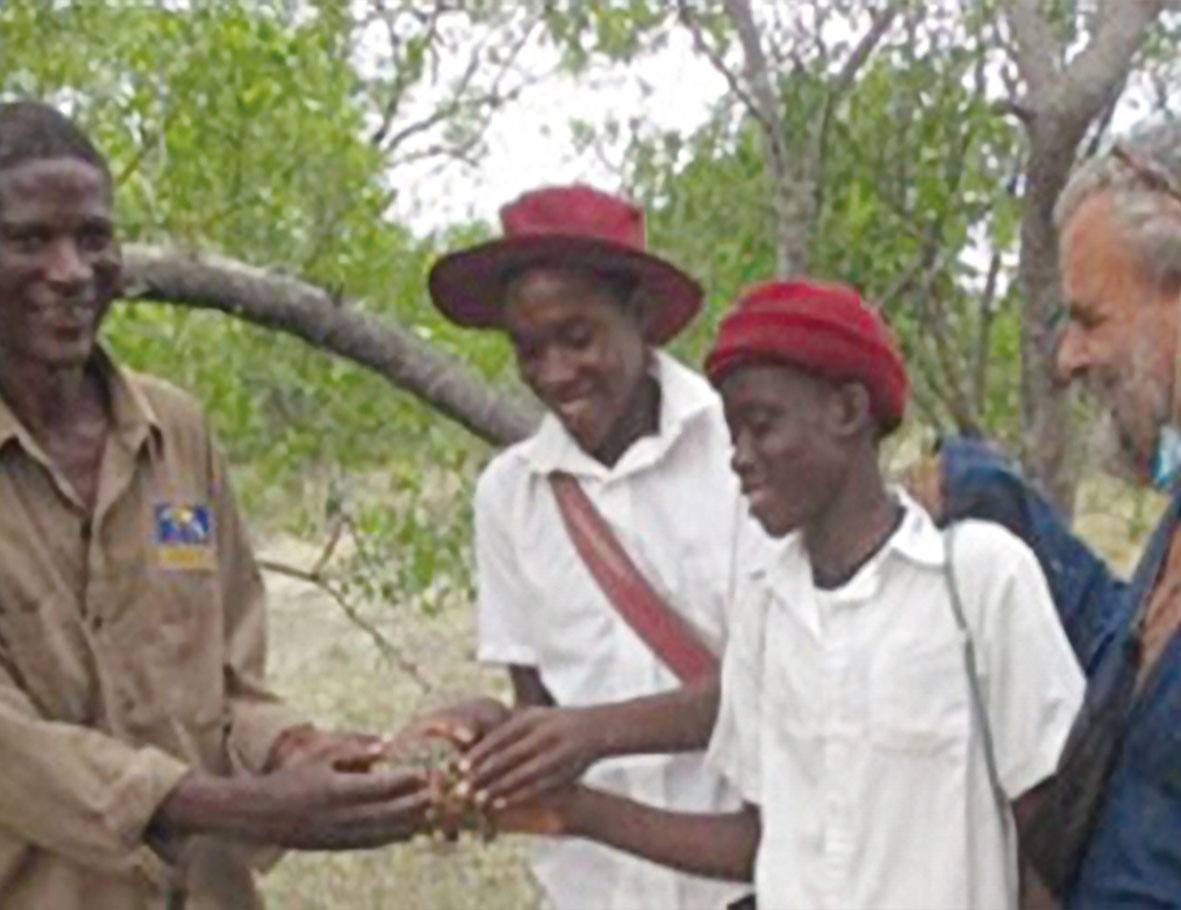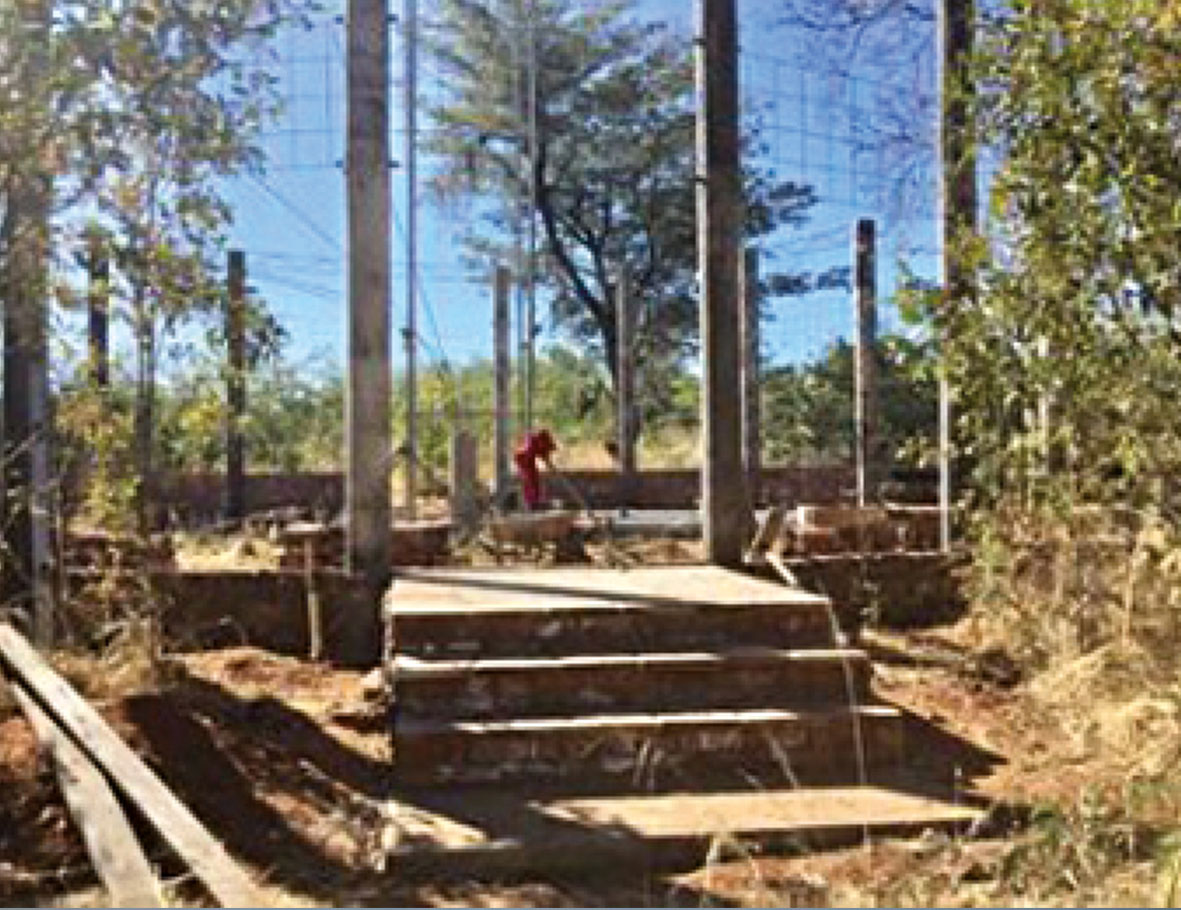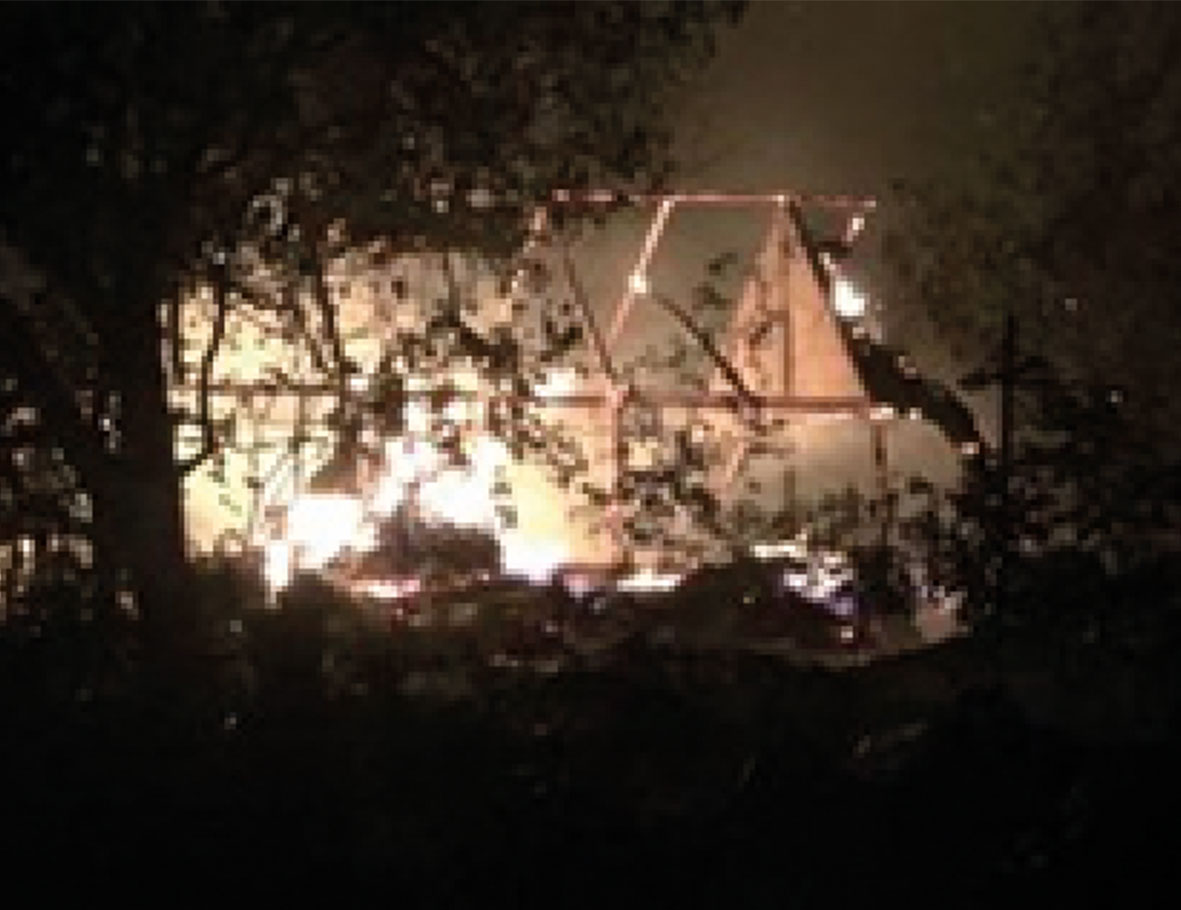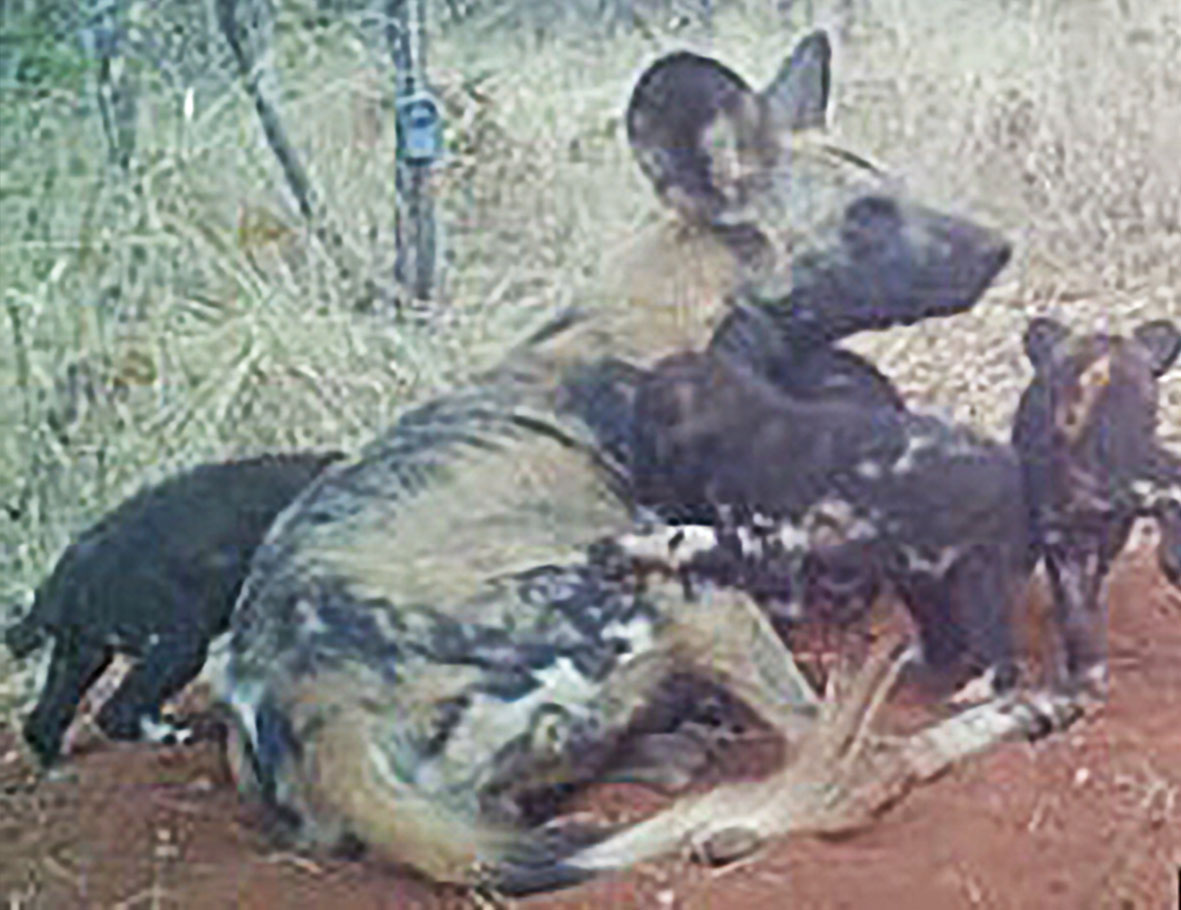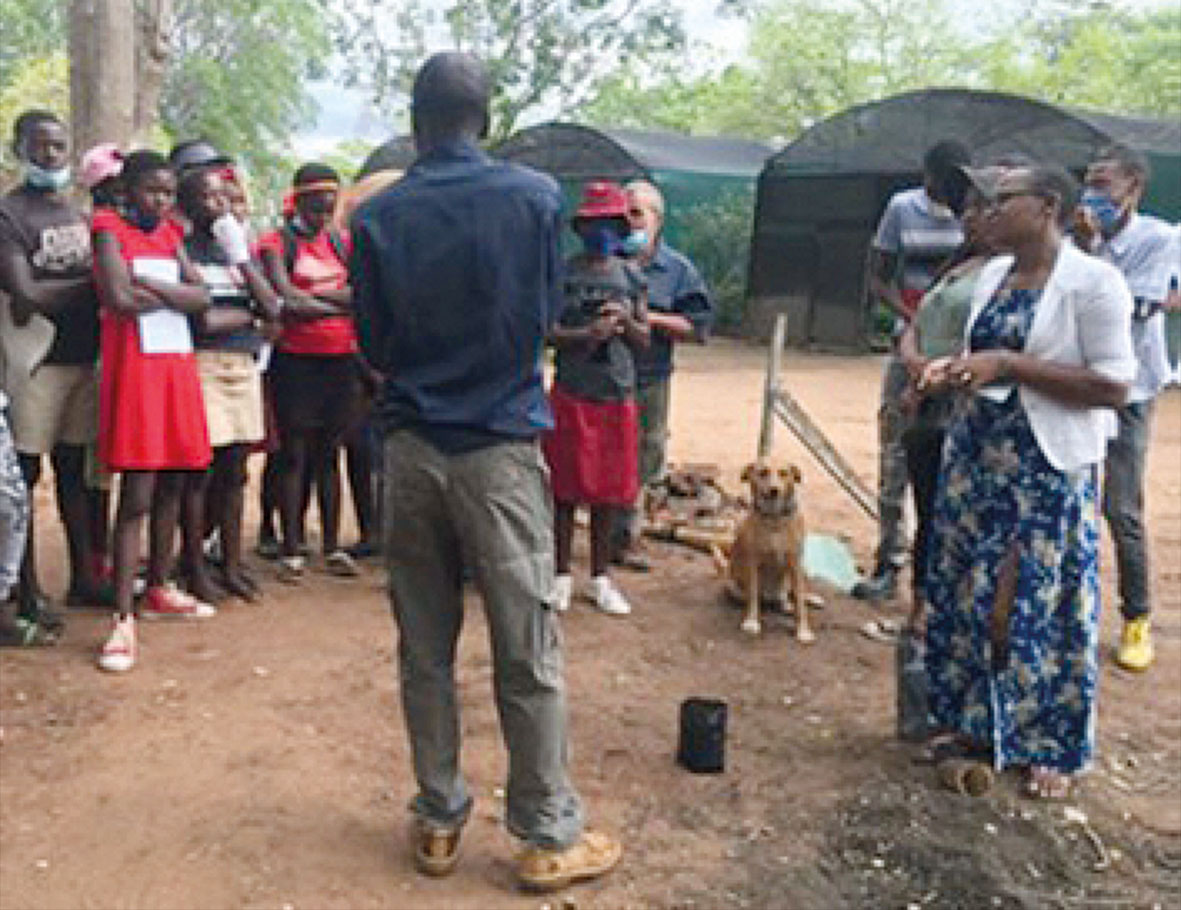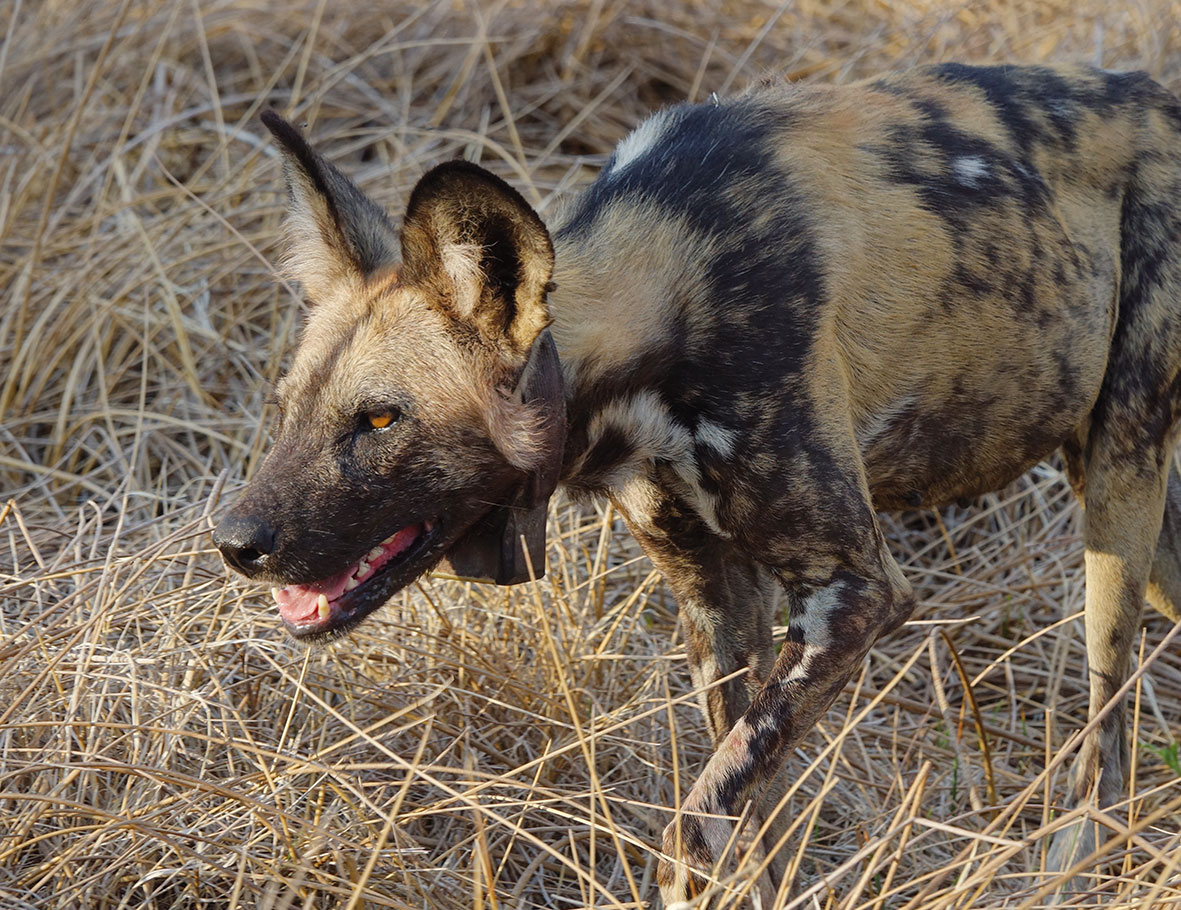Zimbabwe
Help for African Wild Dogs
For more than a quarter century, Dr. Greg Rasmussen, with his NGO, has been fighting in Zimbabwe to protect this extremely endangered – particularly through poaching - animal species. The Academy supports Dr. Rasmussen in this challenge.
Dr. Ulrike Beckmann of the Painted Dog Research Trust (PDRT) recounts:
“For the Painted Dog Research Trust (PDRT) in Zimbabwe, 2020 started off promisingly in the PDRT camp near Victoria Falls, Zimbabwe. A competent and enthusiastic local team of students, with the help of volunteers from the US, worked to complete the construction of the long-awaited dining pavilion, which was designed to provide more day jobs. After a whole season of backbreaking work, the last hallway floor covering was laid. The following night, fate intervened in the form of a lightning strike and the entire building burned to the ground. A united effort prevented the adjacent arid bush from being destroyed. This was an excessively powerful thunderstorm, strong enough to also wipe out the solar system in two separate buildings. Victoria Falls and Hwange, one-hundred kilometers away, were without power for days: unfortunately, another example of the extreme weather caused by climate change. In January and February, PRDT members could participate and share their experiences in meetings related to international and African species conservation initiatives (IUCN Save Our Species and KAZA, which plan a transboundary connection of ecosystems involving five neighboring countries). Also in February, Dr. Greg Rasmussen set off on his annual lecture and fundraising circuit in the US and managed several stops before the Covid- 19 lockdown kept him in England for five long months. In the meantime, the reproduction season for the painted dogs began in Zimbabwe. The reduced camp team set off for the bush and started collecting data via camera traps and the monitoring of the pack. The Musketeer pack of the alpha female Anne gave birth to a litter of five puppies. The camera trap revealed that the Chundu pack with its four adult dogs also had five puppies. Food availability was good and after 12 weeks, the pack with its puppies once again took up its nomadic life. Tragically, two weeks after they had set off, they encountered a transit road through the national park and all but two males, who have never been sighted again, were killed. That signaled the end of the Chundu pack and thus approximately one-quarter of the local painted dog population. This was a heavy blow for everyone. In October, Dr. Greg could finally return and see what his loyal team had accomplished during lockdown: the long-planned water tower was finished and now provides enough water pressure for the student camp. The central student building had made significant progress and the field studies and data were up to date. Starting in October, the enhanced work team concentrated on the camp’s wastewater recycling system which, due to the rocky ground, presents a major challenge. The wastewater should be biologically clarified to the degree that it can water the planned native tree nursery and a vegetable garden. This mammoth project will continue in 2021.
Additional achievements and research projects in 2020:
• Public relations work for the “Vic Falls to Kazangula Road”, which at merely 100 kilometres, touches the territories of all four regional painted dog packs and which channels local as well as international transit traffic. According to a driver survey, the positive attitude of local drivers toward the painted dogs had measurably increased – a significant success after 33 years of educational work! Noticeably less empathy was shown by the surveyed drivers from South Africa, Zambia, and Botswana.
• Analysis of the “den disturbance data”: 2020 showed alarming reports of the collapse of the painted dog population in Mana Pools in connection with disturbances of the breeding dens (den disturbance) of the painted dog pack, caused by researchers, tourists, and the intensive filming activities of the BBC. Constant den disturbances are the reason for diminished feeding visits to the puppies by the hunting pack members, leading to poorer feeding and loss in growth. Furthermore, the continuous disturbance animates the mother dog to transfer her puppies to another den, which additionally endangers the puppies. The analysis of the data of “disturbed” versus “undisturbed” dens confirms previous research: significantly reduced growth and development parameters and significantly increased puppy mortality among litters in disturbed dens.
• Educational work for children and cooperation with local communities: Although only three months were available for educational programs due to the lockdown, 15 schools were visited, and 465 pupils were taught about nature conservation. In addition, 128 children visited the camp and took part in “Kids for Science” programmes with the support of students. A further 25 children undertook an excursion to a distant tree nursery and learned about the importance of tree planting and management.
• A new education programme started in the Woodlands Community Wildlife Area to address old prejudices about painted dogs and to encourage active participation.
• Finally, we are excited about the return of Loswitha Murugani for her practical year at Chinhoyi University. PDRT has been supporting her for over six years and she will be the first woman with a university degree here in the rural Sizinda region.
The second half of 2020 saw continuous heavy rainfall and the bush is stunningly green. For the first time in nine years the surrounding communities had good harvests and wild trees managed to produce seeds. Even in our pitifully eroded camp, a growing species diversity has been established.
We are grateful to organizations such as the Academy, who generously sponsor our work in infrastructure, education, and research programmes.”

